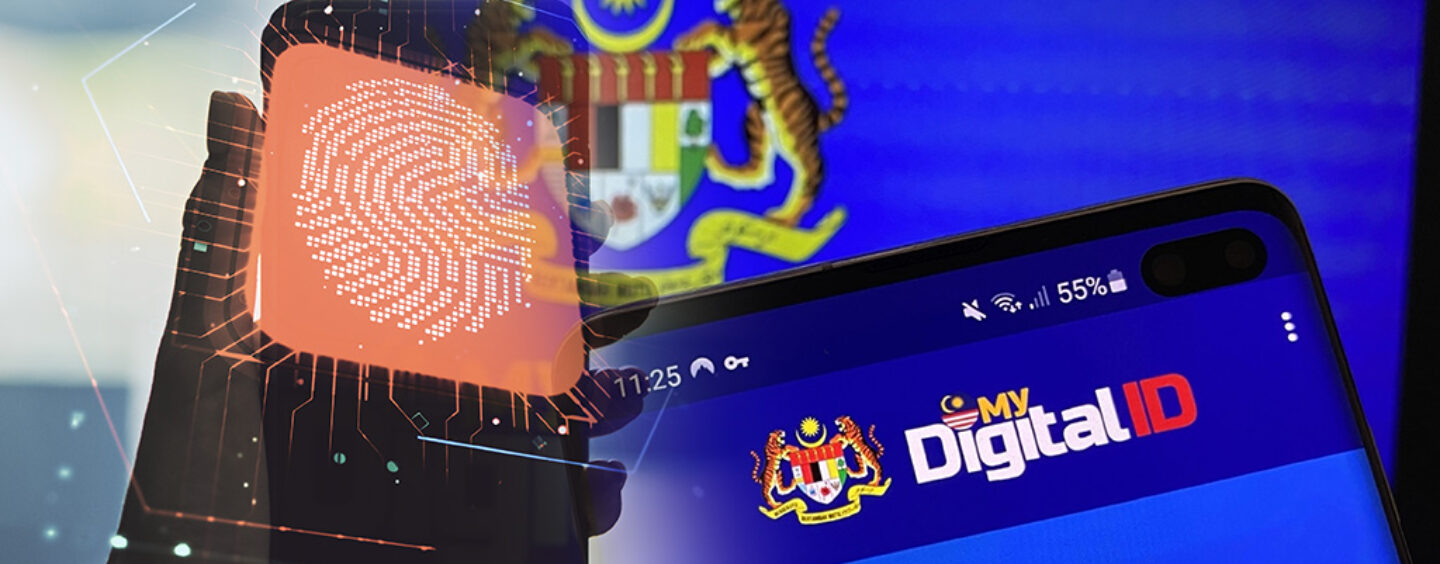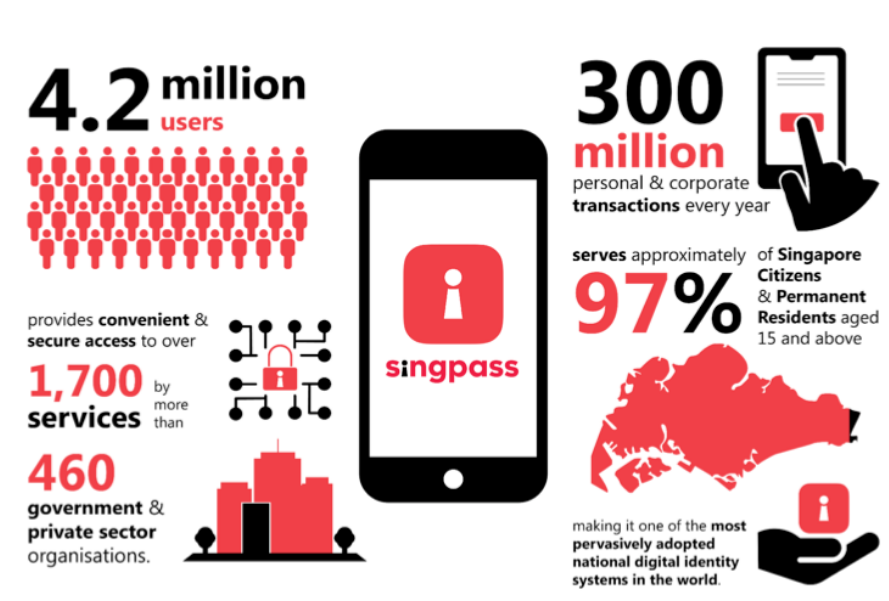
Is Malaysia’s National Digital ID the Key To Shaping a Digitised Society
by Rebecca Oi December 8, 2023In an era dominated by digitalisation, where technology weaves its way into the very fabric of society, the imperative for robust digital identity verification has become increasingly pronounced. In response to this increasing need, Malaysia has initiated the National Digital ID (IDN) project, supported by the Malaysian government.
This development in the digital space is intended to offer a secure and efficient means of online identity verification for Malaysian citizens, potentially reshaping how individuals interact with digital services.
Understanding the Malaysia Digital ID Project
Unlike traditional methods that require users to manage multiple usernames and passwords, the Malaysia Digital ID relies on advanced biometric features, such as facial recognition, fingerprints, iris scanning, and demographic data, to streamline the authentication process. The IDN is not intended to replace the National Registration Identity Card (NRIC) but to complement it.
IDN’s foundation rests on high trust, utilising demographic data from the National Registration Department (Jabatan Pendaftaran Negara, JPN) to issue unique digital identities.
Each IDN comprises random numbers linked to MyKad numbers, ensuring its authenticity. Biometric data is collected at age five and renewed at eighteen, enhancing security and accuracy.
The system prioritises user privacy and security, assigning each individual a single IDN for life. The IDN is also designed for interoperability, aligning with national security policies and international standards.
The IDN is a part of Malaysia’s digital strategy, as detailed in the Malaysia Digital Economy Blueprint or MyDIGITAL, unveiled in 2021. This inclusion in the blueprint aligns the IDN with Malaysia’s broader objectives for digital transformation.
The initiative is a collaborative effort involving Mimos Berhad, the National Cyber Security Agency (Nacsa), CyberSecurity Malaysia, and the National Security Council, all working together to contribute to Malaysia’s digital empowerment.
Anticipated impact of Malaysia’s Digital ID
The implementation of IDN is expected to deliver numerous benefits for Malaysians, businesses, and the government. A significant advantage is creating a trusted platform that the public and private sectors can use to verify user identities during digital transactions, thereby fostering trust and efficiency.
Moreover, IDN is anticipated to stimulate innovation in service delivery, ultimately enhancing Malaysians’ overall quality of life.
It promises to add substantial value to the digital economy, benefiting various sectors, including public services, finance, e-commerce, e-wallets, and e-health. Additionally, IDN will enable individuals to access services without geographical or time constraints.

Prime Minister Datuk Seri Anwar Ibrahim marked the launch of IDN by becoming the first Malaysian to acquire this digital identity. He addressed concerns regarding data leakage and implanted chips, assuring the public that such fears were unfounded.
Further elaborating on the government’s stance, the Prime Minister clarified that registration for the Digital ID would not be mandatory at this stage. The voluntary initial rollout allows issues to be ironed out before scaling up and it helps set realistic expectations around adoption rates.
However, he strongly recommended its adoption by civil servants, highlighting that the Rahmah Cash Aid (STR) and various targeted subsidies would be distributed through the Digital ID, signifying its pivotal role in the nation’s digital infrastructure.
Datuk Ahmad Noordin Ismail, Chairman of the Malaysian Cyber Consumer Association (MCCA), expressed optimism that IDN could reduce bureaucracy and enhance the targeted distribution of government subsidies. He also stressed the government’s need to implement stringent security measures to prevent the misuse of Digital ID, ensuring the system’s integrity and upholding the public’s trust in the initiative.
To alleviate concerns, the government has taken measures to ensure compliance with a stringent Personal Data Protection Act. Additionally, they have undertaken public awareness campaigns led by the Information Department and other relevant agencies to educate citizens. These initiatives emphasise the importance of user consent and control when it comes to IDN data.
Mimos Berhad, appointed as the implementing agency for MyDigital ID with an initial funding of RM80 million, anticipates the system to be widely available by July 2024.
The deployment of MyDigital ID will occur in four distinct stages. It will begin with members of the Cabinet, proceed to civil servants, then extend to individuals who receive government benefits such as subsidy recipients, and ultimately, it will be made available to the broader public.
Parallels with Singapore’s SingPass experience
Neighbouring Singapore offers valuable lessons for Malaysia through its SingPass digital ID programme. Launched in 2003, SingPass allows access to over 2,700 government and private sector services through a single identification.
The enhanced SingPass app uses biometrics like fingerprints and facial recognition for logins, similar to Malaysia’s IDN. It has also expanded in scope over time to enable Internet banking, insurance policy management and digital signatures.
Today, over 80 percent of residents above 15 years old actively use SingPass, with over 350 million personal and corporate transactions facilitated yearly.
However, there are some key differences when benchmarked. One example is renewal – SingPass does not require renewal. In contrast, IDN mandates renewals at the ages of five and 18.
SingPass, with a broader range of services and an extended history, is more deeply integrated into Singapore’s digital ecosystem. Malaysia’s IDN, in contrast, is in an earlier stage of development, with a current focus on specific sectors.

Penny Chai, the Vice President of Business Development for APAC at Sumsub
Penny Chai, the Vice President of Business Development for APAC at Sumsub, a comprehensive verification platform, highlighted the evolution of SingPass into a national identity for all Singaporeans.
Speaking to Fintech News Malaysia, Penny highlighted the convenience of using the SingPass app, which eliminates the need for physical ID cards and offers access to various ecosystem applications.
“These applications cover government agencies such as the Central Provident Fund (a mandatory social security savings scheme with contributions from both employers and employees), the public healthcare institutions, the Immigration and Checkpoints Authority (for immigration related matters), Inland Revenue Authority of Singapore (responsible for tax collection), and SkillsFuture (promotion of lifelong learning),” said Penny.
She added that this has significantly improved security and efficiency in government-related transactions, eliminating the need for passwords and relying on more secure biometric authentication methods.
Despite the differences, there are notable similarities between IDN and SingPass. Both systems leverage national registration data and are designed to be interoperable, conforming to national security policies and international standards.
Additionally, both enable real online identity verification and e-KYC services, utilising biometric data such as fingerprints, iris, and facial recognition to enhance security and user verification processes.
Neither SingPass nor IDN imposes mandatory usage, but they become essential for specific scenarios, facilitating access to government and private sector digital services. The intent is clear: to enable efficient, trusted digital services that are inclusive and accessible to all residents.
The road ahead
Malaysia’s National Digital ID represents a significant leap towards a more digital-savvy and secure future.
This project, which leverages the advanced capabilities of biometrics and demographic data, is set to enhance the lives of Malaysians significantly. It aims to streamline access to various digital services, thereby simplifying everyday interactions in the digital realm.
The development and implementation of the IDN, however, present a blend of challenges and opportunities. It necessitates a delicate balance between cutting-edge technological innovation and the need for privacy, security, and public trust.
In seeking a path forward, Malaysia can draw valuable insights from Singapore’s SingPass system. SingPass’s experience in successfully integrating a digital ID system offers essential lessons for Malaysia’s IDN.
By learning from these experiences, Malaysia’s National Digital ID has the potential to transform the country’s digital landscape and create a more interconnected and efficient digital future, aligning with global digital advancements.










